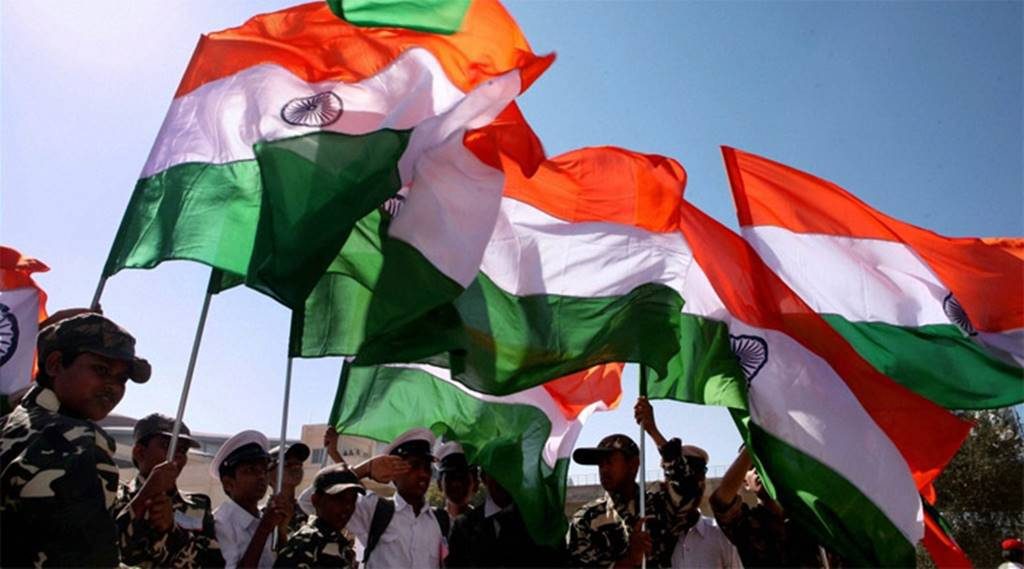
Here is your country. Cherish these natural wonders, cherish the natural resources, cherish the history and romance as a sacred heritage, for your children and your children’s children. Do not let selfish men or greedy interests skin your country of its beauty, its riches or its romance.
Theodore Roosevelt
From the time we as humans remember, there was kinship that prevailed and with the development in the civilization and the sense of attaining an identity as a whole gave birth to Nation and the attitude popularly known as Nationalism.
Definition of Nation
A nation is one of the constructs of human emergence. It can generally be defined as cultural and territorial boundaries paralleled with the political boundaries, having a similar consciousness aspiring to a national flag, national anthem, national language, and national myths. The nation was first described as a result of capitalism, political economy and geography by Weber, David Woodward, Michel Foucault, and Jeremy Black. A nation is actually people grouping up with the aim to attain a similar ideology with the view to govern over it to form a basis for the polity. This idea of nation-state came from the Westphalian System, which certainly existed for the balance of power and the effective centralization to the citizens that gave up their free will for the sole power to govern them all together as one nation.
There have been theories that prevail that nation-state was an ethnocultural domain with purely cultural roots holding it together to a common political state, with civil loyalties which were completely descriptive and voluntary in nature, governed by social dimension or the community, tradition and membership (Gellner and Hobsbawm). Later Hegel, Herder and Kant specified that a nation is a non-voluntary entity, realistically powerful, distinct modern creations and instrumental in the genesis of capitalism. Otto Bauer quoted that nations are real and bonafide entities. With the development in the theories there came a social contract theory by Hobbes, Locke and Rousseau, where they stated that nation-state is a result of an urge to protect, secure one by surrendering their rights to some authority to protect their lives and property, and maintain the enforcement of law and order.
Definition of Nationalism
Nationalism is often confused with patriotism, which is not the case. Patriotism is different from nationalism in the sense, that nationalism is an ideology based on the concept of the existence of a nation-state. Nationalism is an attitude or a feeling, a consciousness that arises to preserve a nation’s traditional cultures and pride. It is not a static phenomenon rather it is dynamic and evolutionary, it means it is different for person to person and has evolved from national conservatism to socialist nationalism.
Nationalism is generally overshadowed with political philosophy. It is a national awakening that is morally ambiguous and is stagnant without outside interference. For me, it is more like its own conscious to seek and achieve an identity as a part of the nation and an attempt to attain political sovereignty over a territorial boundary. It is a feeling about how much a person within the nation cares about his nation. It’s the collective spirit, a mentality or a chronic global condition that gives a sense of belongingness. Isaiah Berlin described nationalism as the idea of consciousness when held down and forcibly repressed by despotic rules.

The definition of nationalism kept on changing from the ancient to the contemporary world, earlier it was about the protection of rights and security of life of an individual and property. In the contemporary world, the issues of nationalism have been shifted from the territorial and geographical problems to the problems of international injustice, terrorism issues, issues of clash of civilizations, hegemony in international orders, migration, resource rights or some vital ecological matters. Nationalism and the emergence of the state have given rise to political forces in any country. Nationalism to people is their identity that they belong to a particular nation.
The Emergence of Nation and Nationalism
A nation is an entity, a result by consciousness among a group of people be it homogeneous or heterogeneous drawing them together, with the object to create a sovereign authority and a sense of loyalty for them to follow it. This consciousness is nationalism. The idea of the nation emerged with the emerging societies and their need to be recognised as one. It was the insecurity of people in the society that gave rise to territorial and geographical boundaries, Liah Greenfeld explained such insecurity arises from specific historical circumstances and becomes effective in various segments of the aristocracy or the intelligentsia. To relieve their insecurity (that is, enhance their status), individuals accept the ideology of nationalism, using it to invent a new nation.
As a result of such ideology, the nation that has emerged, will try to exert their superiority over the inferior pulling them to form a nation and in the urge of getting out of this vicious circle of being bullied by the superior, more united and more developed nation, they will try to come out stronger with their version of nationalism, the conscious so strong leading them to become one nation as a whole and gain their existence. This is how nationalism affirms dignity in any individual. The will to overpower and the desire to gain status gives rise to a nation and awakens the feeling of nationalism in them.
Nation and Nationalism – A Critical Study
There have been so many issues regarding the argument of nation and nationalism, the major issues are- globalisation, international relations, terrorism, world wars, peace issues. Globalization is considered as a technique to earn superiority over other nation-states, this can be a way of showing its uniqueness and that they hold the monopoly over the potential that they hold with them. The entire struggle for security and superiority over the nations pull them together and form diplomatic relations with smaller nations who aim for the same goal, the current example for this is China, making an alliance with Pakistan, Bangladesh and other neighbouring countries to India for expanding their boundaries, which leads to angst in some people.
This angst might result in bitter feelings leading them to practice terrorist activities; the feeling of angst for them is nationalism. They hold themselves responsible to take care of the enemy nation. Which may lead to world wars, the fight for the superiority of their identity over others, extreme nationalism in the negative sense may lead to world wars and hinder world peace and also affect human rights.
Conclusion
Nation has always been a source of identity to its citizen which shows their standing in the world, from the initialization till now the nation has always carried the same definition throughout. People have been so insecure for their life, property and rights that they happened to accept and umbrella that they called a nation where they surrendered themselves to an authority to govern them and protect them. The feeling that they have developed so far is nationalism, which is both positive and negative.
As we say nothing in the quantity more than required is good, similarly in this way nationalism is an intangible feeling or an attitude that lets a man enhance himself to be known as belonging to a particular region and do wonders that will embrace the nation’s reputation. The feeling of nationalism can drive a person crazy in both a positive way where he can yield goodwill for his nation and in a negative way wherein need to let the other nation down he can turn himself to be a terror and label his country to be one supporting the feeling the other way round.